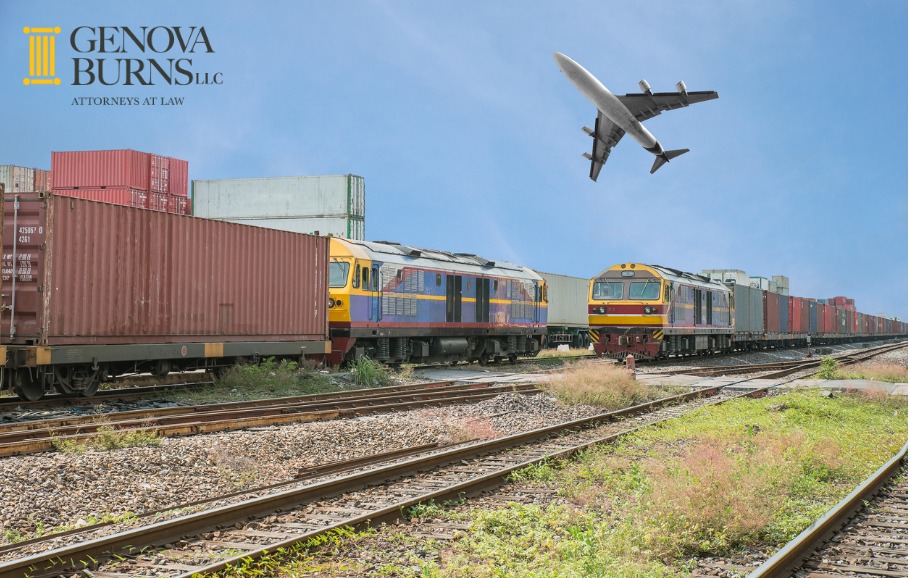NLRB General Counsel Wants More Input From The National Mediation Board To Decide Questions Of Agency Jurisdiction
August 1, 2025 | By: Edward J. Bonett, Jr., Esq.
On July 29, 2025, the Acting General Counsel of the National Labor Relations Board directed NLRB staff across the country to refer questions on whether an employer might be covered by the Railway Labor Act (RLA) to the National Mediation Board (NMB) rather than assert NLRB jurisdiction without consultation. This represents a change from the way the NLRB has recently operated in debatable circumstances. The two boards and the statutes upon which they operate differ significantly, so which agency has jurisdiction matters.
Under the National Labor Relations Act (NLRA), an “employer” does not include “any person subject to” the RLA; likewise, the term “employee” does not cover “any individual employed by an employer subject to” the RLA. The RLA, which was passed in 1926, nine years before the NLRA, applies to “carriers,” defined to include railroads and “any company which is directly or indirectly owned or controlled by or under common control with any carrier by railroad and which operates any equipment or facilities or performs any service (other than trucking service) in connection with” certain enumerated activities. The RLA was later extended to cover air carriers engaged in certain activities but not to companies directly or indirectly controlled by or under common control with carriers by air.
This leaves some grey areas. With so many ancillary services now connected to air and rail travel, the lines are frequently blurred on whether an employer is a carrier under the RLA. The NMB determines what the RLA covers, so it makes sense for the NLRB to consult them in close cases rather than simply decide to assert jurisdiction. Examples of close cases found to be carriers by the NMB have been a company engaged in furnishing air travel service to its members; a company engaged in servicing and storing aircraft; and a company providing rail loading services. Examples of companies found not to be carriers and thus covered by the NLRA include a company engaged solely in intrastate air transportation, and a company that trains pilots and flight engineers, maintains and services aircraft, and operates a minimal air taxi service.
Unlike the NLRA, the RLA has neither a scheme for unfair labor practice charges nor a juridical body to decide cases. The RLA also has a unique multi-layered scheme for resolving disputes. Under the RLA, unions and employers must exhaust a series of dispute resolution mechanisms before engaging in “self-help,” a/k/a work stoppages. The RLA's procedures include mediation and contract arbitration and up to two Presidential Emergency Boards with cooling off periods to encourage settlements. Mediation of disputes is mandatory under the RLA, voluntary under the NLRA. Courts have jurisdiction under the RLA to issue injunctions to preserve the status quo during the mediation process to prevent disruptions to commerce or carrier operations.
After the RLA dispute resolution process is exhausted, unions have effective economic weapons at their disposal, including striking neutral companies, which is prohibited by the NLRA. In essence, the heart of the NLRA is a worker’s rights to organize and the right to strike after contract expiration, while the heart of the RLA is dispute resolution and avoiding disruption to commerce.
Thus, the NLRB realizes that slotting an employer in the right camp at the beginning is key. According to the new GC memo, when an unfair labor practice charge or representation petition reveals the possibility that the involved employer is a “carrier” as defined in the RLA, the NLRB will immediately refer the matter to the NMB for an advisory opinion. rather than take it upon itself to determine which agency has jurisdiction. The memo states that this process will better respect the role the RLA plays in maintaining stability in the transportation industry.
Should you have any questions, please contact Partners Edward J. Bonett, Jr., Esq. at 908.546.6991 or via email here, Patrick W. McGovern, Esq. at 973.535.7129 or via email here, or any Partner in our firm’s Labor Law Practice Group.
Tags: Genova Burns LLC • Patrick W. McGovern • Edward J. Bonett, Jr. • NLRB • Railway Labor Act • NLRA • National Mediation Board • Transportation Trucking & Logistics • Department of Transportation


